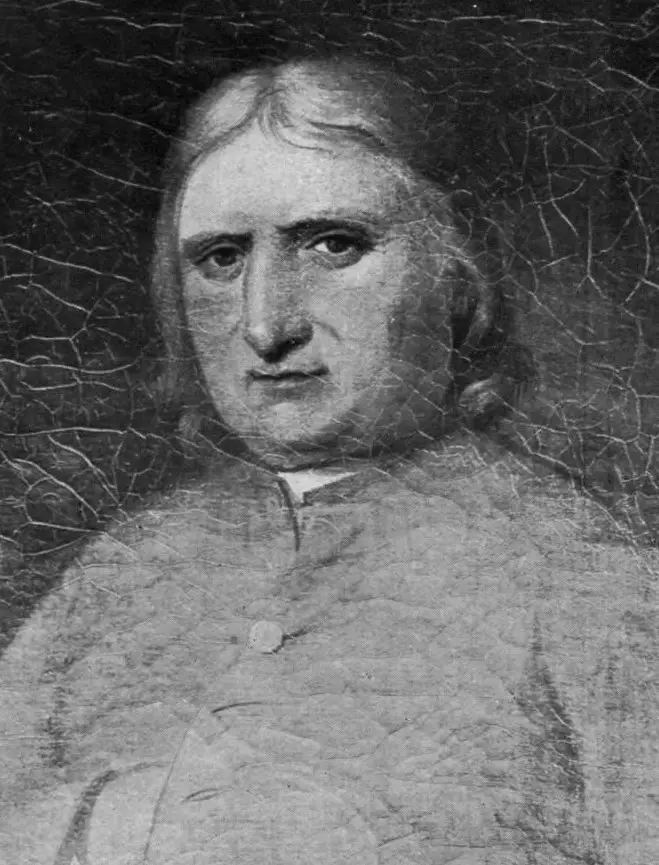The Quakers
Various Protestant religions were being formed in England during the 17th and 18th centuries. This was during a time when it was against the law to have any other religion except that recognized by the Church of England.

One of these religions was the Religious Society of Friends, also called the Quaker Movement. It was founded by George Fox in the 17th century and believers were persecuted because their philosophy was that God exists in every individual.
Like many of the religions of the time, these people left England to move to places such as the New World where they were free to worship as they wanted.
- The Quakers were viewed as vastly different that many of both the Protestant and the Catholic religions of their time. Unlike others, they didn’t have elaborate ceremonies and didn’t even have a minister or church leader. One of the most radical ideas was that they believed that both men and women had spiritual equality, and they believed in pacifism, which meant they didn’t believe in violence, war or taking any legal oaths. The first Quaker missions came to America around the middle of the 1650s.
- The early Quakers that settled in America faced a lot of persecution. Even in the New World their religion was thought to be extreme. The persecution came mostly from the Puritans who outnumbered the Quakers in Massachusetts and in some cases, Quakers were even executed for their beliefs. However, one Quaker, William Penn, was favored by King Charles II in 1681 and was given a land grant in the New World as a way to pay off a debt to his family. Penn establishing a safe place for Quakers to live and more and more arrived from England to pursue religious freedom. William Penn is the founder of what is now the state of Pennsylvania, which means “Penn’s land.”
- The Quakers were important during the 1800s because they not only felt that slavery was wrong but that women should be equal in all ways. This prompted many of their members to be a part of both the women’s movement and the abolitionist movement. They carried the philosophy of their original founders in the country to believe that Blacks shouldn’t be slaves.
- The Quakers belief that all men and women are equal also included the Native Indians that lived in America. Many of the Quakers started movements that protected Native Indians and their rights, including creating adoption centers and schools. The only problem that the Quakers brought with them from England was the idea that all Natives should adopt the ways of the culture of the white people.
- By the 19thcentury Quakers had created a good foundation for their religion and many decided to become members of the women’ suffrage movement that was happening in the United States. This added to their previous activism in the belief of antislavery. Both men and women were involved in these movements with one of the most notable of Lucretia Mott. She was a Quaker minister that boycotted the use of any cotton cloth, cane sugar, or any other products that were made with the use of slave labor. Mott establish women’s societies for abolitionism because all of the anti-slavery movements wouldn’t allow women to participate.
- Mott was critical to the women’s rights movement as she brought the topic to many Americans. She was elected the American Equal Rights Association’s first president in 1848 in their Seneca Falls, NY meeting. Even when slavery was finally ended in 1865, Mott continued to push to get Black Americans the right to vote. She was joined by another noteworthy female Quaker, Susan B. Anthony, whose life was dedicated to getting women the right to vote and is the founder of the American Equal Rights Association.
- Two additional famous Quaker women that were activists for the suffragette movement as well as prison reform, and changing the treatment of the mentally ill includes Alice Paul and Elizabeth Fry.
Q&A:
Who was the founder of the Quaker movement?
George Fox
What is another name for the Quakers?
The Religious Society of Friends
What were some of the beliefs of the Quakers?
God exists in each person, pacifism, no specific minister, all people are equal
What two major movements were many of the Quakers involved in?
Abolitionist and women’s movements
What was the name of the radical female Quaker that establish women’s abolitionist groups?
Lucretia Mott
What other movements did women Quakers champion to help people in society?
Better treatment for the mentally ill and prisoner’s rights



